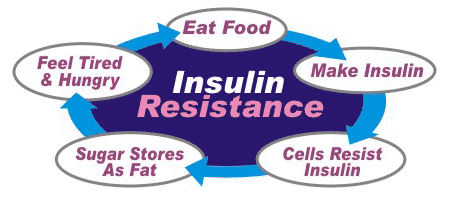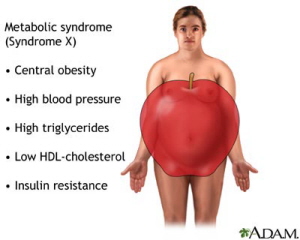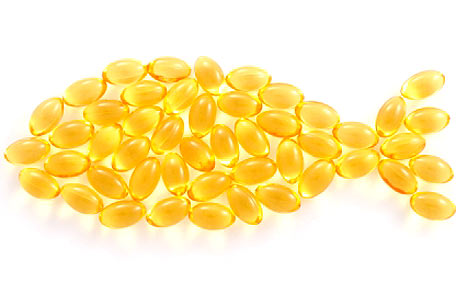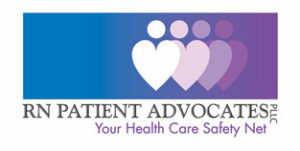Insulin Resistance: Ever wonder what it really is? Could this be a factor in your life and health?
 First, what is it? Insulin is produced in the pancreas and is responsible for regulating delivery of glucose (sugar) into cells to provide them with the material to create energy. In insulin resistance the normal receptors on the cell walls that “open up” the cell to let in the sugar do not work. Consequently the pancreas pumps out more insulin to force the cells to open to the sugar. This leads to high levels of both insulin and sugar in your body. Often this is not detected until the condition becomes severe and leads to diabetes.
First, what is it? Insulin is produced in the pancreas and is responsible for regulating delivery of glucose (sugar) into cells to provide them with the material to create energy. In insulin resistance the normal receptors on the cell walls that “open up” the cell to let in the sugar do not work. Consequently the pancreas pumps out more insulin to force the cells to open to the sugar. This leads to high levels of both insulin and sugar in your body. Often this is not detected until the condition becomes severe and leads to diabetes.
 What does it look like? What problems can it cause? Insulin resistance promotes weight gain. Weight gain (particularly abdominal obesity) promotes insulin resistance. Rather a vicious cycle occurs with insulin resistance promoting weight gain, which promotes more insulin resistance. It is also associated with high blood pressure, high triglycerides, low HDL cholesterol, increased risk of diabetes and heart disease.
What does it look like? What problems can it cause? Insulin resistance promotes weight gain. Weight gain (particularly abdominal obesity) promotes insulin resistance. Rather a vicious cycle occurs with insulin resistance promoting weight gain, which promotes more insulin resistance. It is also associated with high blood pressure, high triglycerides, low HDL cholesterol, increased risk of diabetes and heart disease.
How can it be detected? If you suspect this may be a issue for you, you should ask your physician to check 3 main blood values: 1. your fasting blood sugar 2. your Hemoglobin A1C (both of which done routinely) and your fasting insulin level (not typically done routinely). All are paid by insurance and are critical for determining if you are at risk.
If there is a good deal of belly fat and/or a low level of daily physical activity, the risk is higher.
What can be done about this? Is it a one-way road to disease? No it is not! Increasing physical activity and weight loss will reduce the insulin resistance and reduce your risk of the conditions it leads to. These life style changes can turn your health around.

Is diet important? Absolutely critical! Eating less bread, more fruits and vegetables, reducing saturated fat intake (fried foods), eating less red meat and more chicken and fish – all will help protect you.
 One more thing: we keep coming back to the absolute health value of fish oil. Well, a study published this year reported that omega 3 fatty acids (fish oil) reduces insulin resistance and greatly reduces the level of triglycerides. So, supplementing with wild salmon or taking a high quality fish oil will be very helpful.
One more thing: we keep coming back to the absolute health value of fish oil. Well, a study published this year reported that omega 3 fatty acids (fish oil) reduces insulin resistance and greatly reduces the level of triglycerides. So, supplementing with wild salmon or taking a high quality fish oil will be very helpful.
 First, what is it? Insulin is produced in the pancreas and is responsible for regulating delivery of glucose (sugar) into cells to provide them with the material to create energy. In insulin resistance the normal receptors on the cell walls that “open up” the cell to let in the sugar do not work. Consequently the pancreas pumps out more insulin to force the cells to open to the sugar. This leads to high levels of both insulin and sugar in your body. Often this is not detected until the condition becomes severe and leads to diabetes.
First, what is it? Insulin is produced in the pancreas and is responsible for regulating delivery of glucose (sugar) into cells to provide them with the material to create energy. In insulin resistance the normal receptors on the cell walls that “open up” the cell to let in the sugar do not work. Consequently the pancreas pumps out more insulin to force the cells to open to the sugar. This leads to high levels of both insulin and sugar in your body. Often this is not detected until the condition becomes severe and leads to diabetes.
 What does it look like? What problems can it cause? Insulin resistance promotes weight gain. Weight gain (particularly abdominal obesity) promotes insulin resistance. Rather a vicious cycle occurs with insulin resistance promoting weight gain, which promotes more insulin resistance. It is also associated with high blood pressure, high triglycerides, low HDL cholesterol, increased risk of diabetes and heart disease.
What does it look like? What problems can it cause? Insulin resistance promotes weight gain. Weight gain (particularly abdominal obesity) promotes insulin resistance. Rather a vicious cycle occurs with insulin resistance promoting weight gain, which promotes more insulin resistance. It is also associated with high blood pressure, high triglycerides, low HDL cholesterol, increased risk of diabetes and heart disease.
How can it be detected? If you suspect this may be a issue for you, you should ask your physician to check 3 main blood values: 1. your fasting blood sugar 2. your Hemoglobin A1C (both of which done routinely) and your fasting insulin level (not typically done routinely). All are paid by insurance and are critical for determining if you are at risk.
If there is a good deal of belly fat and/or a low level of daily physical activity, the risk is higher.
What can be done about this? Is it a one-way road to disease? No it is not! Increasing physical activity and weight loss will reduce the insulin resistance and reduce your risk of the conditions it leads to. These life style changes can turn your health around.

Is diet important? Absolutely critical! Eating less bread, more fruits and vegetables, reducing saturated fat intake (fried foods), eating less red meat and more chicken and fish – all will help protect you.
 One more thing: we keep coming back to the absolute health value of fish oil. Well, a study published this year reported that omega 3 fatty acids (fish oil) reduces insulin resistance and greatly reduces the level of triglycerides. So, supplementing with wild salmon or taking a high quality fish oil will be very helpful.
One more thing: we keep coming back to the absolute health value of fish oil. Well, a study published this year reported that omega 3 fatty acids (fish oil) reduces insulin resistance and greatly reduces the level of triglycerides. So, supplementing with wild salmon or taking a high quality fish oil will be very helpful.





Recent Comments